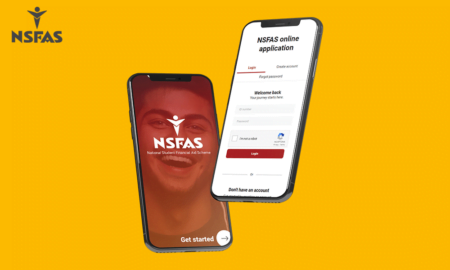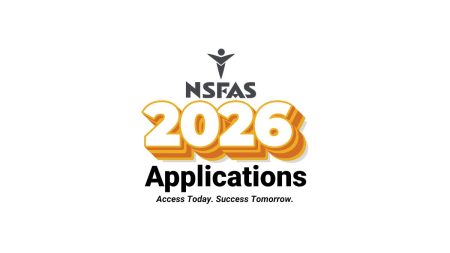If you’re a South African student relying on NSFAS funding, doing a regular NSFAS Status Check is key to staying informed about your application. Whether you’re waiting for approval, need to provide more documents, or want to understand the latest update, checking your NSFAS status keeps you in the loop.
This guide will walk you through the simple steps to perform your NSFAS Status Check in 2025, explain what each status code means, and give you useful tips on how to follow up if needed. Don’t miss out—stay on top of your NSFAS status with ease!
Why is the NSFAS Status Check Important?
The National Student Financial Aid Scheme (NSFAS) is a critical resource for many South African students from low-income households, providing funding to help with tuition, accommodation, and other costs associated with studying. By regularly performing an NSFAS Status Check, you ensure you’re informed about the progress of your application, allowing you to plan ahead and take action if needed.
Steps to Perform an NSFAS Status Check Online
Here’s a step-by-step breakdown of how to do an NSFAS Status Check in 2025:
Step 1: Visit the Official NSFAS Website
Go to the official NSFAS website at www.nsfas.org.za.
Look for the “myNSFAS Student Portal” tab, which is located in the top right corner of the page.
Step 2: Log in to Your myNSFAS Account
If you already have an account, enter your ID number and password to log in.
New users will need to create an account by clicking on “Create Account” and following the registration steps. You’ll need your South African ID number, a valid email address, and a secure password.
Step 3: Check Your NSFAS Status
Once logged in, go to your dashboard and click on the “Check Your Application Status” button.
Your NSFAS Status Check will be displayed, showing whether your application has been approved, declined, or is still in progress.
Step 4: Follow Up If Necessary
If your application is declined or under review, contact NSFAS to inquire about the reason.
You may need to provide additional documents or take other actions depending on the feedback.
Learn more: How to Recover Your myNSFAS Username Without Creating a New Account
Understanding NSFAS Status Codes
Knowing what each NSFAS Status Check code means can help you understand where you are in the application process. Here are the most common status codes you may encounter:
Application Submitted: Your application has been successfully received by NSFAS.
Filtering: NSFAS is verifying whether you meet basic eligibility criteria.
Validation: Your personal information is being verified with external organizations, such as SASSA and the Department of Home Affairs.
Evaluation: NSFAS is reviewing the supporting documents you submitted with your application.
Funding Eligibility: Your household’s financial information is under review to determine if you qualify for funding.
Awaiting Academic Results/Admission: NSFAS is waiting for your academic results or admission status from your institution.
Awaiting Registration: NSFAS is waiting for your institution to confirm your registration.
Agreement Signing: You must sign your bursary agreement before funding can be disbursed.
What to Do If Your NSFAS Status Check Shows a Decline
It’s not the end of the road if your NSFAS Status Check shows a decline. In some cases, you can appeal the decision. Here’s what you need to know:
Who Can Appeal?
Missing Documentation: If your application was declined due to missing documents, you can submit the required paperwork and appeal.
Criteria Discrepancies: If there were any discrepancies in your application, you may be eligible for an appeal.
Who Cannot Appeal?
Non-Eligible Qualifications: If you’re applying for a course that isn’t covered by NSFAS, your application cannot be appealed.
Exceeded the N+ Rule: NSFAS funds students for the standard duration of their course plus an additional two years (N+2). Students with disabilities are allowed an extra year (N+3). If you exceed this period, you cannot appeal.
Learn More: NSFAS NSF-Blocked: What It Means and How to Fix It
Frequently Asked Questions (FAQs)
What Should I Do If I Forget My myNSFAS Login Details?
If you forget your login details, click on the “Forgot password” link on the login page and follow the instructions to reset your password.
How Often Can I Check My NSFAS Status?
You can check your NSFAS Status as often as you like. However, checking your status frequently won’t expedite the processing of your application, so be patient.
What If My NSFAS Application is Unsuccessful?
If your NSFAS Status Check shows that your application is unsuccessful, you may reapply in the next cycle. Be sure to address any issues raised in your previous application for a better chance of success.
NSFAS Contact Information
If you have any issues with your NSFAS Status Check or need further assistance, you can reach NSFAS through the following channels:
- Toll-Free Number: 08000 67327
- Email: info@nsfas.org.za
- Facebook:National Student Financial Aid Scheme
- Twitter: @myNSFAS
- Instagram: @myNSFAS
- WhatsApp: +27 63 093 5671
- USSD:*120*67327#
Stay Informed and Take Action with Your NSFAS Status Check
Regularly checking your NSFAS Status is essential for staying informed about your funding progress and taking necessary action if needed. If you have any issues or need clarification, don’t hesitate to contact NSFAS directly.
Make sure you keep your login details handy, follow the steps outlined in this guide, and stay proactive in managing your NSFAS application. If you found this guide helpful, explore our other related articles for more tips on securing your financial aid and ensuring a smooth journey through your studies.










